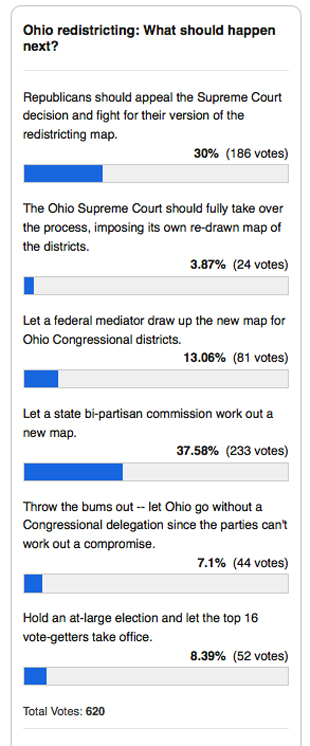Is it, of course, unwise for a U.S. Secretary of State to be perceived as “joking” about the brutal mob death of a deposed head of state. Hillary Clinton’s reaction to the spectacle of events in Libya was offensive. According to a CBS new story:
Secretary of State Hillary Clinton shared a laugh with a television news reporter moments after hearing deposed Libyan leader Muammar Qaddafi had been killed. “We came, we saw, he died,” she joked when told of news reports of Qaddafi’s death by an aide in between formal interviews.
To my ears Hillary’s words sound like a cheap shot, one maybe expected of a second rate stand up comedian, but hardly one worthy of an official representing, next to the Presidency, the highest office of the executive branch of the U.S.government. Hillary, who has gained a lot of respect for her work as Secretary of State, and who is known as a defender of human dignity, in this matter, I imagine, honestly regrets her uncharacteristic lack of personal discipline in controlling her response to this event.
There are conflicting accounts of just how he died. There are videos showing him wounded, but alive, stumbling among a crowd of NTC soldiers and begging for mercy. Another video shows his body being paraded through the city of Misrata. Other photographs show Gaddafi with bullet holes in his head that The New York Times says appear to have been fired at close range, raising the possibility that Gaddafi was executed. Libya’s leaders say he died in a crossfire.
Though there are conflicting reports, details of Gaddafi’s final moments have emerged. The Associated Press reports that after he was dragged out of a drain pipe, Gaddafi raised his hands and said, “Don’t kill me, my sons.” Upon being captured, Libyan forces tried to load him into a vehicle when loyalists forces engaged in a gun fight. At this point, Gaddafi was wounded in his right arm. As more shots rang out, the former dictator was struck in the head (possibly by his own bodyguards) and then died moments before reaching a hospital, said Libya’s transitional prime minister.
Al Jazeera aired footage of Gaddafi—dripping blood but seemingly alive—being dragged around Sirte. Another video showed Gaddafi with his eyes open and what looks like a gunshot wound to his head, as Libyan fighters fired gunshots into the air. In a third shocking video on YouTube, fighters posed for pictures with Gaddafi’s corpse, positioning the lifeless body by pulling his hair. Meanwhile, after Secretary of State Clinton heard of the former dictator’s demise, she joked with a reporter. “We came, we saw, he died,” she said, referring to her trip to Tripoli earlier this week.


























